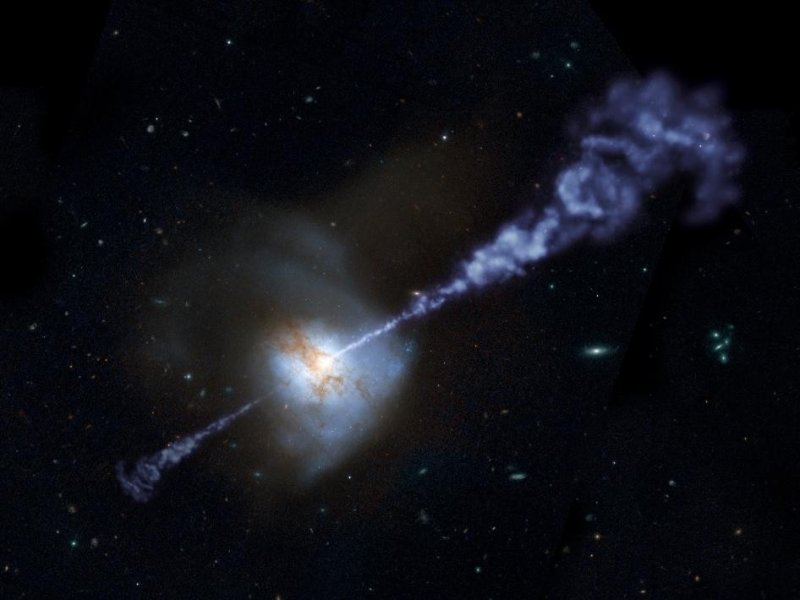Artists impression of a black hole at the center of a galaxy. As active black holes continue to rev up, the rate of star formation will, in turn, be tamped down in the galaxy. Credit: NASA/JPL-Caltech
PASADENA, Calif., May 9 (UPI) -- Galaxies with powerful, active and "hungry" black holes at their core produce fewer stars than galaxies with less active black holes, European astronomers say.
Findings from the European Space Agency's Herschel Space Observatory suggest black holes suppressed galactic star formation when the universe was less than half its current age, they said.
"We want to know how star formation and black hole activity are linked," lead study author Mathew Page of University College London said. "The two processes increase together up to a point, but the most energetic black holes appear to turn off star formation."
Early in the history of the universe, giant luminous black holes, called active galactic nuclei, were often much brighter and more energetic than they are now, and star formation was also livelier then.
"At that epoch, galaxies were forming stars 10 times more rapidly than they are today on average, study author James Bock at NASA's Jet Propulsion Laboratory in Pasadena, Calif., said.
"Many of these galaxies are incredibly luminous, more than 1,000 times brighter than our Milky Way," he said in a JPL release Wednesday.
Star formation dropped off in galaxies with the most energetic central black holes consuming the most gas, researchers said.
Inflows of gas fuel both new stars and supermassive black holes, they said, but feed a black hole too much and it starts spewing radiation into the galaxy that prevents raw material from coalescing into new stars.
"Now that we see the relationship between active supermassive black holes and star formation, we want to know more about how this process works," said Bill Danchi, Herschel program scientist at NASA Headquarters in Washington. "Does star formation get disrupted from the beginning with the formation of the brightest galaxies of this type, or do all active black holes eventually shut off star formation, and energetic ones do this more quickly than less active ones?"















